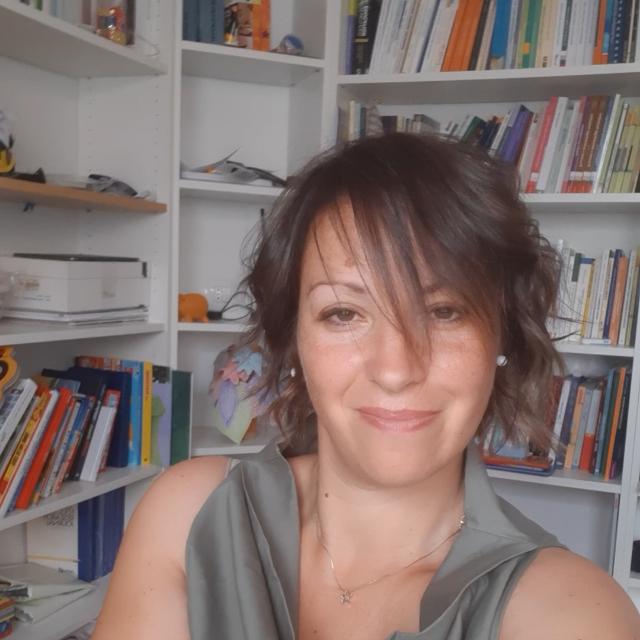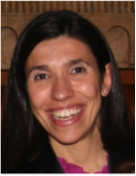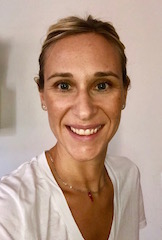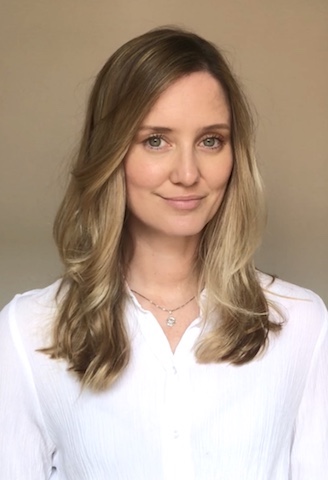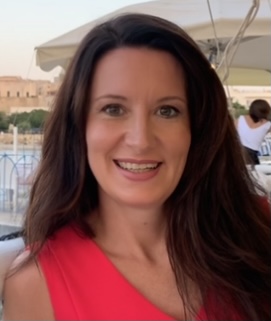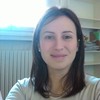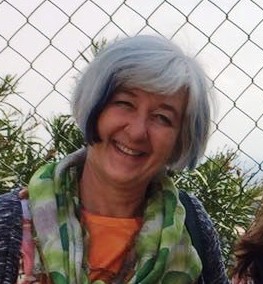Studying at the University of Verona
Here you can find information on the organisational aspects of the Programme, lecture timetables, learning activities and useful contact details for your time at the University, from enrolment to graduation.
Academic calendar
The academic calendar shows the deadlines and scheduled events that are relevant to students, teaching and technical-administrative staff of the University. Public holidays and University closures are also indicated. The academic year normally begins on 1 October each year and ends on 30 September of the following year.
Course calendar
The Academic Calendar sets out the degree programme lecture and exam timetables, as well as the relevant university closure dates..
| Period | From | To |
|---|---|---|
| Sem. 1A | Sep 24, 2018 | Oct 27, 2018 |
| Sem. 1B | Nov 19, 2018 | Dec 21, 2018 |
| Sem. 2A | Feb 18, 2019 | Mar 23, 2019 |
| Sem. 2B | Apr 8, 2019 | May 18, 2019 |
| Session | From | To |
|---|---|---|
| Sessione d'esame Invernale | Jan 21, 2019 | Feb 16, 2019 |
| Sessione d'esame Estiva | Jun 17, 2019 | Jul 27, 2019 |
| Sessione d'esame Autunnale | Aug 26, 2019 | Sep 21, 2019 |
| Session | From | To |
|---|---|---|
| Sessione Invernale | Feb 27, 2019 | Mar 13, 2019 |
| Sessione Estiva - I appello | Jun 10, 2019 | Jun 24, 2019 |
| Sessione Estiva - II appello | Jul 3, 2019 | Jul 16, 2019 |
| Sessione Autunnale - I appello | Oct 9, 2019 | Oct 21, 2019 |
| Sessione Autunnale - II appello | Dec 4, 2019 | Dec 17, 2019 |
| Period | From | To |
|---|---|---|
| Festa di Ognissanti | Nov 1, 2018 | Nov 1, 2018 |
| Festa dell’Immacolata | Dec 8, 2018 | Dec 8, 2018 |
| Vacanze di Natale | Dec 22, 2018 | Jan 6, 2019 |
| Vacanze di Pasqua | Apr 19, 2019 | Apr 23, 2019 |
| Festa della liberazione | Apr 25, 2019 | Apr 25, 2019 |
| Festa del lavoro | May 1, 2019 | May 1, 2019 |
| Festa del Santo Patrono - S. Zeno | May 21, 2019 | May 21, 2019 |
| Festa della Repubblica | Jun 2, 2019 | Jun 2, 2019 |
| Description | Period | From | To |
|---|---|---|---|
| Prima parte del primo semestre | Lab. 1A | Oct 29, 2018 | Nov 10, 2018 |
| Seconda parte del primo semestre | Lab. 1B | Jan 7, 2019 | Jan 19, 2019 |
| Prima parte del secondo semestre | Lab. 2A | Mar 25, 2019 | Apr 6, 2019 |
| Seconda parte del secondo semestre | Lab. 2B | May 20, 2019 | Jun 1, 2019 |
Exam calendar
Exam dates and rounds are managed by the relevant Humanistic Studies Teaching and Student Services Unit.
To view all the exam sessions available, please use the Exam dashboard on ESSE3.
If you forgot your login details or have problems logging in, please contact the relevant IT HelpDesk, or check the login details recovery web page.
Should you have any doubts or questions, please check the Enrollment FAQs
Academic staff
 monica.antonello@univr.it
monica.antonello@univr.it
 3409616648
3409616648
 jessica.bertolani@univr.it
jessica.bertolani@univr.it
 valentina.biino@univr.it
valentina.biino@univr.it
 marisa.bonafini@univr.it
marisa.bonafini@univr.it
 antonio.cosentino@univr.it
antonio.cosentino@univr.it
 donato.desilvestri@univr.it
donato.desilvestri@univr.it
Ganzerla Luca Giovanni Michelangelo
 lucagiovanni.ganzerla@univr.it
lucagiovanni.ganzerla@univr.it
 licia.landi@univr.it
licia.landi@univr.it
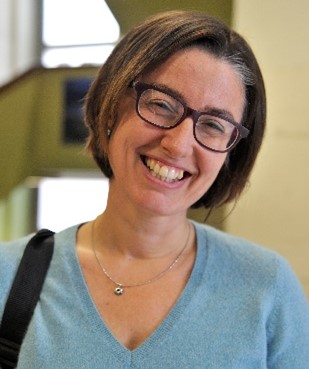
La Rana Adele
 adele.larana@univr.it
adele.larana@univr.it
 giuseppe.longo@univr.it
giuseppe.longo@univr.it
 beatrice.melodiafesta@univr.it
beatrice.melodiafesta@univr.it
 anja.meyer@univr.it
anja.meyer@univr.it

Migliorati Lorenzo
 lorenzo.migliorati@univr.it
lorenzo.migliorati@univr.it
 045802 8135
045802 8135
 maria.mori@univr.it
maria.mori@univr.it
 paolo.nitti@univr.it
paolo.nitti@univr.it
 nicola.pelizzari@univr.it
nicola.pelizzari@univr.it
 beatrice.perin@univr.it
beatrice.perin@univr.it
 michele.picotti@univr.it
michele.picotti@univr.it
 marinarighetti.mr@gmail.com
marinarighetti.mr@gmail.com
 angeloluigi.sangalli@univr.it
angeloluigi.sangalli@univr.it
 3383725508
3383725508
 marco.ubbiali@univr.it
marco.ubbiali@univr.it
 federica.zantedeschi@univr.it
federica.zantedeschi@univr.it
Study Plan
The Study Plan includes all modules, teaching and learning activities that each student will need to undertake during their time at the University.
Please select your Study Plan based on your enrollment year.
1° Year
| Modules | Credits | TAF | SSD |
|---|
2° Year activated in the A.Y. 2019/2020
| Modules | Credits | TAF | SSD |
|---|
3° Year activated in the A.Y. 2020/2021
| Modules | Credits | TAF | SSD |
|---|
4° Year activated in the A.Y. 2021/2022
| Modules | Credits | TAF | SSD |
|---|
English laboratory 4th year
5° Year activated in the A.Y. 2022/2023
| Modules | Credits | TAF | SSD |
|---|
| Modules | Credits | TAF | SSD |
|---|
| Modules | Credits | TAF | SSD |
|---|
| Modules | Credits | TAF | SSD |
|---|
| Modules | Credits | TAF | SSD |
|---|
English laboratory 4th year
| Modules | Credits | TAF | SSD |
|---|
| Modules | Credits | TAF | SSD |
|---|
Legend | Type of training activity (TTA)
TAF (Type of Educational Activity) All courses and activities are classified into different types of educational activities, indicated by a letter.
English laboratory 4th year [Gruppo 1] (2021/2022)
Teaching code
4S006156
Teacher
Coordinator
Credits
2
Language
Italian
Scientific Disciplinary Sector (SSD)
L-LIN/12 - LANGUAGE AND TRANSLATION - ENGLISH
Period
Sem. 1A dal Sep 27, 2021 al Oct 30, 2021.
Learning outcomes
1. Conoscenza e capacità di comprensione
- conoscere alcuni tra i principali approcci, tecniche e strumenti glottodidattici per l’insegnamento della lingua inglese, con riferimento alla fascia d’età relativa alla scuola dell’infanzia e alla scuola primaria
- avere familiarità con tematiche relative a qualche aspetto sociolinguistico legato alla pluralità della lingua inglese oggi
2. Conoscenza e capacità di comprensione applicata
- saper valutare e scegliere tecniche, strumenti e materiali adeguati per l’insegnamento della lingua inglese con riferimento alla fascia d’età relativa alla scuola dell’infanzia e alla scuola primaria
3. Autonomia di giudizio
- saper auto-valutare le proprie competenze linguistiche e glottodidattiche, definendo i punti di miglioramento
4. Abilità comunicative
- saper utilizzare la lingua in situazioni comunicative di insegnamento relativamente alla fascia d’età della scuola dell’infanzia e della scuola primaria
5. Capacità di apprendere
- saper individuare le principali caratteristiche di approcci e tecniche glottodidattiche, per adattarli al contesto di apprendimento e alla fascia d’età relativa alla scuola dell’infanzia e alla scuola primaria;
- essere in grado di reperire, scegliere e adattare materiali e attività per l’insegnamento della lingua inglese per questa fascia d’età
Program
Pre-requisite to the course: B1 CEFR Level - English
Topics and issues related to the main approaches, techniques and strategies to teach English to young learners children will be explored during the course, including the development of the four skills (listening and speaking in particular), as well as on how to evaluate and design ELT materials for young learners. The course will include work on the following areas: young learners’ characteristics; English, Englishes and ELF: implications for the language classroom; Skills: Listening and speaking - drama and storytelling; songs/chants and game activities; reading and writing; vocabulary and grammar; creating, adapting and evaluating activities for young language learners.
Pre-requisite: B1 CEFR language level (English)
Attivita' di apprendimento previste e metodologie di insegnamento:
After an introductory session with issues and materials related to the lesson topics, students will work cooperatively in pairs/small groups, with individual contributions in the development of activities relatedto the different topics. Lessons will be integrated by online materials and activities within the dedicated e-learning Moodle class. The course will be held in English.
Eventuali indicazioni sui materiali di studio:
Materials (power point slides, articles and essays distributed during the lessons) can be integrated with the books in the reading lists (basic and additional).
Reading list
Cameron L. 2001. Teaching Languages to Young Learners. Cambridge: Cambridge University Press.
Moon J. 2005. Children Learning English. Oxford: MacMillan.
Pinter A. 2006. Teaching Young Language Learners. Oxford: Oxford University Press.
Slattery M., Willis J. 2003. English for Primary Teachers. Oxford: Oxford University Press.
Additional readings
Balbi R. 2010. L’apprendimento dell’inglese. Proposte per la scuola primaria. Roma: Carocci Faber.
Bianchi C., Corasaniti P., Panzarasa N. 2004. L’inglese nella scuola primaria. Roma: Carocci Faber.
Lopriore L. 2012. Buzzwords in ELT. Roma: Anicia.
Santipolo M. (ed.). 2012. Educare i bambini alla lingua inglese. Lecce: PensaMultimedia
Thornbury S. 2006. An A-Z of ELT. Oxford: MacMillan.
Bibliography
Examination Methods
During the oral exam, to be held in English, students will discuss topics related to the course, starting from materials and activities part of the Individual Learning Portfolio that was developed during the course, supporting their choices as to activities and materials.
Evaluation criteria:
The final score, out of 30, will take into account the ability to:
● adequately illustrate and discuss the contents of the Individual Learning Portfolio
● connect the activities included in the Individual Learning Portfolio with the methodological framework, adequately supporting and motivating the rationale within which they were planned
Pre-requisite for the exam: B2 CEFR language level (English)
Type D and Type F activities
Modules not yet included
Career prospects
Module/Programme news
News for students
There you will find information, resources and services useful during your time at the University (Student’s exam record, your study plan on ESSE3, Distance Learning courses, university email account, office forms, administrative procedures, etc.). You can log into MyUnivr with your GIA login details: only in this way will you be able to receive notification of all the notices from your teachers and your secretariat via email and soon also via the Univr app.
Stage e Tirocini
Le attività di tirocinio indirette e dirette, per complessive 600 ore pari a 24 crediti formativi universitari, come stabilito dal D.M. 249/2010, hanno inizio nel secondo anno di corso e si svolgono secondo modalità tali da assicurare un aumento progressivo del numero dei relativi crediti formativi universitari fino all'ultimo anno.La struttura generale del tirocinio prevede:
- II annualità 100 ore di tirocinio pari a 4 CFU
- III annualità 100 ore di tirocinio pari a 4 CFU
- IV annualità 175 ore di tirocinio pari a 7 CFU
- V annualità 225 ore di tirocinio pari a 9 CFU.
Il tirocinio è seguito da insegnanti tutor coordinatori e da tutor organizzatori distaccati, rispettivamente a tempo parziale e a tempo pieno, presso il CdS. Esso prevede attività che si sviluppano secondo modalità di partecipazione periferica e modalità di partecipazione attiva: tali attività dovranno essere, adeguatamente documentate da parte dello studente e saranno supervisionate dai tutor competenti.
La frequenza alle attività di tirocinio è obbligatoria.
Documents
| Title | Info File |
|---|---|
|
|
pdf, it, 115 KB, 23/06/21 |
Progetto Dinamo corsi di formazione continua
I corsi del Progetto Dinamo sono una proposta di formazione continua per i/le docenti della scuola dell'infanzia e primaria in servizio elaborata dal Corso di Studi in Scienze della Formazione Primaria dell'Università di Verona.
La loro frequenza, in numero limitato, è aperta anche agli studenti di Scienze della formazione primaria.
L'iscrizione non comporta oneri per gli studenti.
Per i corsi di 8 ore sarà riconosciuto 1 CFU nei crediti liberi; per quelli di 16 ore i crediti liberi riconosciuti saranno 2.
Le modalità di iscrizione saranno comunicate e gestite tramite i rappresentanti degli studenti.
Documents
| Title | Info File |
|---|---|
|
|
pdf, it, 198 KB, 29/08/22 |
Gestione carriere
Linguistic training CLA
Practical information for students
Documents
| Title | Info File |
|---|---|
|
|
pdf, it, 325 KB, 02/05/23 |
|
|
pdf, it, 212 KB, 02/05/23 |
|
|
pdf, it, 131 KB, 02/05/23 |
Student mentoring
Student login and resources
Graduation
Documents
| Title | Info File |
|---|---|
|
|
pdf, it, 434 KB, 07/02/24 |
|
|
pdf, it, 418 KB, 30/11/23 |
|
|
pdf, it, 131 KB, 19/03/24 |
eTwinning
Il Corso di SFP di Verona fa parte del Gruppo Europeo per la formazione eTwinning per i futuri insegnanti – Initial Teacher Education (ITE). Seminari di presentazione della piattaforma e delle sue potenzialità, introduzione alla comunità e/o laboratori sull’uso della stessa sono proposti annualmente come parte integrante dei Laboratori di Lingua Inglese per la Professionalità Docente, e quindi come parte dell’offerta formativa; per il II anno anche con attività progettuale in lingua inglese, studente-studente o a piccoli gruppi.
Per il I anno, a partire dall’ A.A. 2017/2018 è stato realizzato con il supporto dell’USR Veneto e la collaborazione delle ambasciatrici eTwinning un incontro seminariale di presentazione della comunità e piattaforma eTwinning, come parte del Laboratorio di Lingua Inglese per la Professionalità docente. Gli studenti svolgono attività di ricerca e reperimento materiale nel portale eTwinning, studiano alcuni progetti considerati “buone pratiche” e si confrontano con una breve attività in piccolo gruppo sui primi passi di introduzione e orientamento ad un progetto eTwinning. Solitamente sono coinvolti circa un centinaio di studenti.
Per il II anno, a partire dall’A.A. 2020/2021, è stato introdotto un Laboratorio eTwinning (12 ore – 1CFU) di progettualità didattica in lingua inglese. Gli studenti svolgono attività individuali all’interno della Comunità volte a costruire una rete di partner e cogliere ogni potenzialità offerta dalla piattaforma. Inoltre, viene proposta una simulazione progettuale, in piccoli gruppi, dall’introduzione dei partner alla valutazione e disseminazione dei risultati di un progetto eTwinning. Solitamente partecipano circa un centinaio di studenti. Al termine del modulo è richiesto un portfolio digitale in lingua inglese. I futuri docenti esercitano contemporaneamente competenze linguistiche, digitali e sociali facilmente riutilizzabili nella professione futura.
Per il V anno, a partire dal AA 2022/2023, è stato introdotto, all'interno del Laboratorio di Lingua Inglese, un Laboratorio eTwinning di progettualità didattica con un altro ITE (12 ore – 1CFU).
Nell'a.a. 2022/2023 è stata attivata e realizzata una collaborazione con SFP - Università di Cagliari.
Nell'a.a. 2023/2024 si è attivata una collaborazione con l'Università di Castilla-La Mancha (Spagna).
Le attività realizzate sono state presentate durante il Coordinamento Nazionale eTwinning ITE
- a Firenze il 17 e 18 marzo 2022
- e a Lecce il 15 e 16 maggio 2023



